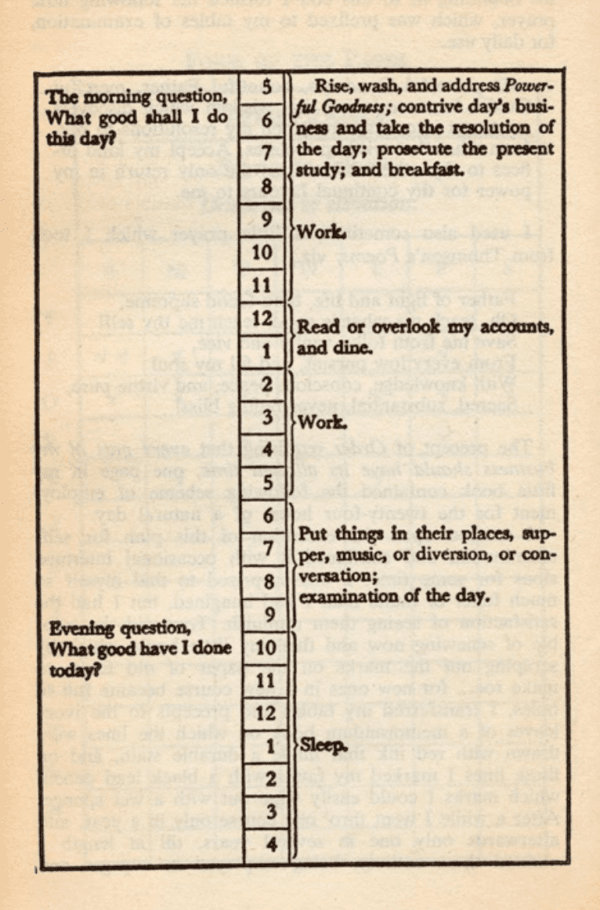Here’s the daily schedule he adhered to, which he shared in his autobiography.
Looks pretty familiar, right? Franklin’s habits would have allowed him to thrive in today’s fast-paced world, just as they did in the 18th century.
Jay Harrington is an author and lawyer-turned-entrepreneur who runs a northern Michigan-inspired lifestyle brand called Life and Whim. He lives with his wife and three young girls in a small town and writes about living a purposeful, outdoor-oriented life.
Author’s Selected Articles






